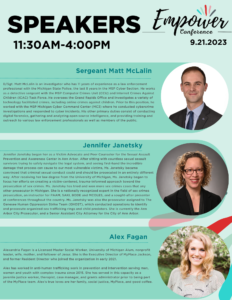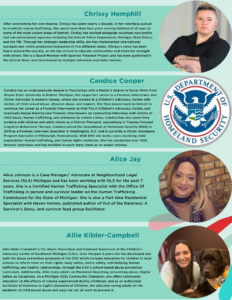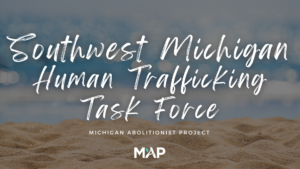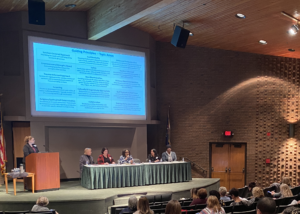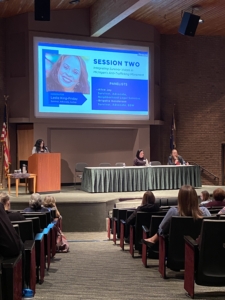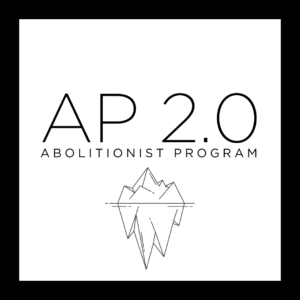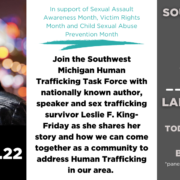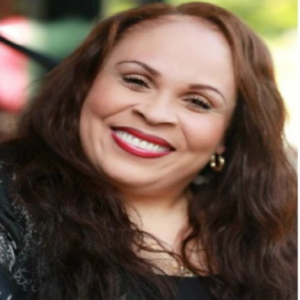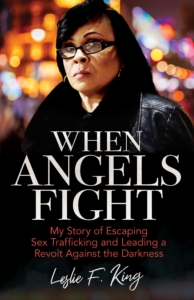You’ve Seen “Sound of Freedom”, Now What?
The Michigan Abolitionist Project (MAP), a service line of Vista Maria, focuses on education and awareness, community engagement, and collaborating with like-minded organizations in an effort to transform the culture that allows human trafficking to exist and thrive.
You’ve Seen “Sound of Freedom”, Now What?
If you are like many who have seen the Sound of Freedom film, you may have left the theater with a range of emotions – angry, frustrated, scared, inspired to get involved, or curious and in search of more information…we know we did! The film has received mixed reviews, with some praising its message and others criticizing its accuracy and portrayal of the complex issue of human trafficking. In this blog post, we will address some of the misconceptions that the movie perpetuates and offer some resources for those who want to learn more about the reality of this global problem and how they can make a difference in their community.
The Problem
Human trafficking happens when someone exploits another person to obtain some type of labor or commercial sex act for their own financial gain. It is estimated that there are over 27 million men, women and children being trafficked worldwide, including right here in the United States. Of the 27 million, over 6 million are trafficked into commercial sexual exploitation. Exploitation can take many forms and often preys on those most marginalized in our communities. At its core, human trafficking is fueled by gender, racial, and income inequalities. It is a human rights atrocity that denies the inherent worth and dignity of those it victimizes.
Language Matters
First and foremost, we would like to point out that the use of “saving” or “rescuing” terminology is problematic and is not empowering to survivors. While these terms conjure up images for the cinematic effect they do not convey the complex dynamics found in trafficking situations and create, intentionally or not, the role of hero [the rescuer] and helpless victim [the rescued]. This disproportionate power structure does not convey that the survivor has control of their life and the capacity to influence their future. This puts the rescuer at center of the narrative instead of where the focus needs to be: on the survivor. In January 2023, Polaris Project published a blog Language Matters: 5 Ways Your Words Impact Trafficking Survivors which goes into more detail and includes statements from survivors on how using appropriate word choices and language matters when talking about human trafficking and survivors of trauma.
Although the movie has helped put a spotlight on the issue of human trafficking, we need to remember that one movie, especially one about a topic as complex as human trafficking, will not tell the entire story, give an accurate picture, or provide a solution to the problem. To even begin to eradicate human trafficking, we must first educate ourselves about the root causes of trafficking, who is most vulnerable in our communities, and how traffickers groom their victims.
Here are some of the realities that we see (backed by data) here in the United States:
The Reality of Human Trafficking in the United States
- Where does human trafficking happen? Human trafficking occurs in all 50 states, in both rural and urban areas. According to the National Human Trafficking hotline, the most commonly reported venues for sex trafficking situations involving U.S. citizen victims were hotels and motels, in addition to houses, apartments, or trailers known as residential brothels. Human trafficking does not require moving, traveling, or transporting a person across state or national borders.
- Who are the victims? Most of the victims of sex trafficking in the U.S. are our own citizens primarily from marginalized communities. While it is true that anyone can be trafficked, some people are more vulnerable than others. People living in poverty, those with unstable housing or facing homelessness, children in foster care or aging out of foster care, those in the juvenile justice system, people who have a history of trauma or addiction, those who identify as LGBTQ+, and runaways all are at greater risk of exploitation. Traffickers prey on economic and social vulnerabilities and they look to fill a need such as a belonging, relationship, safety, a place to stay or food. According to Polaris, through the National Human Trafficking Hotline, they have found that most victims/survivors report being between the ages of 16-17 when they first entered
- Where and how victims are recruited? Kidnapping victims and forcing them into the sex trade through violence is rare. It does happen, but it is rare. Instead, we see traffickers most often groom their victims over time so they are no longer strangers but someone that the victim knows and trusts such as a romantic partner or a family member. Being aware of how traffickers lure and groom their victims is key to recognizing and preventing sex trafficking.
- Victims can be recruited in public places such as malls, sporting events, the neighborhood, as well as online through social media apps and online games or through false job opportunities that might appeal to young people like modeling or acting.
- The Internet plays a significant role in both the recruitment of victims and the facilitation of sex trafficking. Traffickers use social media and dating websites to contact potential victims.
- How Sex Traffickers Use Social Media to Contact, Recruit, and Sell Children.
- What fuels sex trafficking? Like any commercial enterprise, commercial sexual exploitation is a matter of supply, distribution and demand. The supply is the victim. The distribution is the trafficker or the online material. The demand is the purchaser of the sex act. As the demand increases, traffickers must increase the supply of victims. The buyer in this marketplace views the victim as a dehumanized product for immediate consumption and disposal. If buyers were not seeking commercial sexual services, then sex trafficking would cease to be a profitable venture.
- What is the relationship between pornography, trafficking, and the sexual abuse of children? One unforeseen consequence of the rise of the internet has been an explosion in the illicit trade of child sexual abuse images and videos. More than 32 million reports of suspected child sexual exploitation were received by the National Center for Missing and Exploited Children in 2022 [That’s over 564,000 reports per week]. Though child sexual abuse material (CSAM) is a global issue, the United States remains one of the largest producers and consumers of child abuse content in the world. It’s important to understand the true nature and pervasiveness of child sexual abuse material to convey the urgent need to address this crime.
7 things you can do to act on what you have learned…
- Educate yourself about the complexities of human trafficking and what is myth, rumor, and reality. Polaris Project is a great source for accurate information.
- Human Trafficking Rumors
- Sign up to become an Abolitionist through our free 10-week digital training series: Abolitionist Program
- Connect with anti-trafficking organizations and service providers in your area to see if they have volunteer or fundraising opportunities.
- Find a MAP community group in your area, click here
- Identify the people in your community who are most vulnerable to traffickers. Are there people facing homelessness? Are there youth in foster care? Is there poverty? Substance Abuse? How can you get involved in prevention work so that youth are never trafficked in the first place?
- Advocate for laws and policies that support survivors and hold traffickers and sex buyers accountable. Contact your representatives and tell them human trafficking is an issue you care about.
- Join MAP’s Advocacy Action Emails to learn more, click here
- Learn from Survivors – listen to their stories, read their books, develop your understanding of human trafficking on their lived experience.
- Request a presentation or training to learn more about human trafficking, request a training and find out what you can do to get involved.
- Request a MAP speaker here
- To learn more about Online Exploitation and Sex Trafficking of Children and Youth, register to attend MAP’s FREE [Virtual] Empower Conference, September 21, 2023.
- Register here.
We hope this information has been helpful and empowering. We can all play a part, working together, to help prevent and end human trafficking. If you have further questions or would like to continue the conversation with one of our staff you can email us at: info@map-mi.org
*Angel Studios released a disclaimer with the “reality behind the movie,” you can read it here.




